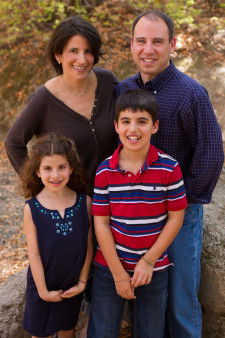Fighting Lung Cancer Stigmas Saves Lives (a cross-post from Psychology Today)
[This article was originally posted on Psychology Today. It was written by Theodora Ross, M.D., PhD. I worked with her on the article. It is Part 1 of a two part series. I will post Part 2 tomorrow.]
Earlier this year, I appeared on NPR’s Fresh Air to discuss my recent book, A Cancer in the Family. During the interview, the conversation turned to ways individuals can reduce their risk for cancer. To make a point, I compared acting on knowledge of one’s genetic risk to smoking: “If you stop smoking or you don’t smoke,” I said, “the chances are you won’t get lung cancer.”
Not long after, I received an email from a stranger with a subject line referencing the interview. The sender was a 43-year-old woman from California named Lisa who, despite never smoking or living with smokers, had been diagnosed with advanced-stage lung cancer at age 41. “I have never smoked a single cigarette,” she wrote. “I have never lived or worked with smokers. I have no other *known* risk factors for lung cancer either.” She told me she emphasized the word “known” due to the fact that little research has been done on non-smoking related causes of lung cancer.
“I realize,” Lisa continued, “that your reference to smoking and lung cancer was just an off-hand remark and not the main point of your interview. However, lung cancer receives the least research funding of all the major cancers and has one of the poorest survival rates, due in large part to the stigma that statements, even casual ones like yours, perpetuate.”
I replied with a lengthy apology for generalizing without providing context. But Lisa’s words echoed. Just hours before I had received that email, a colleague and I had been lamenting that if we could eliminate all incidents of cancer caused by lifestyle choices(many due to smoking), we’d have far fewer cancer cases today. This would leave time to study cancers with unknown causes, which would lead to better and faster diagnoses. And it would help end the stigma surrounding patients like Lisa—a stigma that I had inadvertently perpetuated on a national radio program.
The stigmas and stereotypes around lung cancer need to be erased
In 1964, when the first US Surgeon General’s Report on the health consequences of Smoking was published, 45 percent of adults smoked cigarettes despite stacks of evidence indicating that cigarettes caused lung and many other cancers. The year before,smoking in America had reached an all-time high thanks in large part to mass-marketadvertising campaigns during the previous few decades that falsely promoted smoking as a glamorous, even healthful, activity.
In 2014, fifty years after that first Surgeon General’s Report, smoking has been identified as a leading cause of twenty-two diseases. Heart disease, which kills more people in the United States each year than any other illness, is at the top of the list. Many other organs dysfunction as a result of cigarettes and of course several cancers other than lung cancer are linked to cigarette smoking. Despite this, lung cancer has been singled out as the “smoker’s disease,” when in fact, it is one of many smoker’s diseases.
Unfortunately, this fact leads to a stigma surrounding lung cancer patients—non-smokers and smokers alike—since people assume they could have prevented their disease. For non-smokers like Lisa, this can be an especially surprising twist to an already difficult diagnosis, even though there are many other patients like her. Currently, approximately 20 percent of lung cancer diagnoses in America (about 16,000-24,000 per year) occur in people who have never used tobacco products, and that fraction is on the rise, especially as smoking becomes less popular. (At present, only 15 percent of Americans smoke.) Additionally, many of the remaining 80 percent of lung cancer diagnoses are in former smokers, those who quit years or even decades before their diagnosis. Unfortunately, though, the stigma persists, and it can lead to devastating, even deadly, consequences.
Let’s break the stigma
Stigmas and stereotypes are lazy. They result from jumping to conclusions based on biases instead of facts, and they lead us into one-track thinking that prevents us from seeing the whole picture. Meanwhile, they wreak havoc on the lives of those who’ve been stigmatized, isolating them from their peers and rendering them the victims of prejudicial forces beyond their control.

After I received Lisa’s email, I thought of how, in 1939, my Uncle Jack changed our family name from Rosenblum to Ross in order to increase his chances of getting a job. By changing his name, he avoided the stigmas and stereotypes associated with Jewish people and allowed himself to be considered on an even playing field with all the other candidates. It was unfortunate that such a change was necessary, but he got the job.
Lung cancer patients can’t make this choice, so it is up to the rest of us to change our way of thinking in regard to the disease. Hopefully, one day soon people will quit cigarettes once and for all, and smoking-induced lung cancers will be a thing of the past. In addition to preventing suffering, this would allow researchers to dedicate more attention to other causes of lung cancer. In the meantime, let’s combat damaging stigmas and stereotypes by dealing in facts and choosing our words with care. When we do, we not only increase empathy, we save lives.


